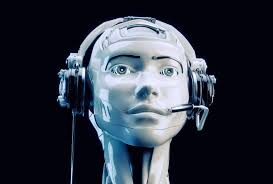Tools for character-based text to speech (TTS)The challenge is selecting the best among them based on voice customizations, natural language processing and ease of fine-tuning speech dynamics. The best TTS software with customizable parameters such as pitch, speed and emotion levels make them perfect for storytelling voices e.g. in Gaming or Audio books. Advent of AI-driven TTS solutions makes new voices possible which can suit certain mood, personality and background characteristics associated with a character.
Amazon Polly (Character-based TTS) One of the most well-known tools that performs character based Text-to-Speech and comes with the human sounding Neural TTS engine to generate a lifelike speech. Polly has more than 60 voices in multiple languages for developers to use, with different parameters including intonation and speech rate that can be tuned to create unique character profiles. So, changing the pitch by 10% could make a voice sound younger or slowing down speech rate by as little as about 15%, can provide character with 'still waters run deep...thoughtful..carefully considering' tone.
Google Cloud Text-to-Speech is another powerful tool that leverage DeepMind's WaveNet models to generate human-like voices. With over 90 voice in more than 30 languages, Google Text-to-Speech engine is highly versatile for creating characters. You can choose different types of voices, for example from cheerful and full of energy to serious or somber. Based on a 2023 claims report, Google’s TTS is also good at making brand new character voices which saw usage by gaming and media increase 35%.

Murf AI provides creators that focus on character-driven content to create fully customizable voices with a variety of accents, emotional states and vocal styles. Additional functionality includes voice cloning (e.g. to keep a character's specific tone of voice consistent throughout multiple projects). Ranging in price from $9 per month, Murf AI offers a cheaper alternative to hiring voice actors for expensive rates that can reach hundreds of dollars per session.
Quite notable is the IBM Watson Text-to-Speech, giving different levels of control over voice-modulation and intonation as well. It is ideal for character voices that have special speech patterns or need specific accents, and can also use custom lexicons/pronunciation. Stress levels on certain words or syllables can be opened for users to adjust according to the emotional state of a character. Such detail is critical in interactive storytelling where characters with automatic behavior closely follow the player's options.
Synthesia and Resemble AI are getting a lot of traction as an overall solution for characters combining visual character animation with custom voices. Resemble AI, on the other hand provide emotion based real-time generation of voices so you can use this system for game characters who will have different types of emotions. Language voice audio is also supported, making it possible to narrate stories in many different languages with a consistent character voices across localizations.
According to one industry expert: "The improvement in TTS technology allows creators of all kinds the ability to craft synthetic voices that feel real and personalized, offering new opportunities for interactive media and character development." There is no exception here, both for commercial projects and independent production of content these platforms are a necessary tool if working with char-based TTS.
To everyone looking into TTS for their stories, this text to speech with characters generator offers extensive flexibility so you can a perfect voice that reads as human or sound robotic.
